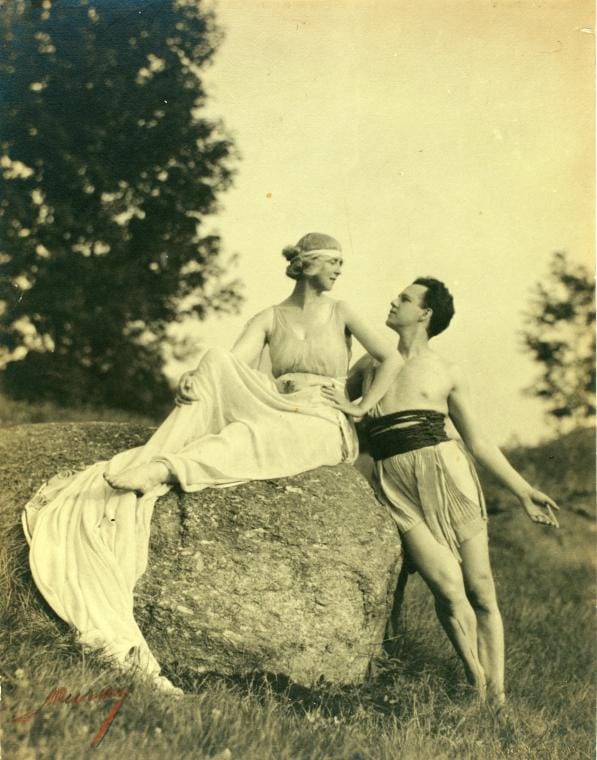Brief Scenes From Our Marriage
First comes love, then comes marriage, then comes the Opposite of Feng Shui. A marriage, told in four parts.

Scene 1: Healthy Snacks
Our seven-year-old son is in the family room playing video games with some friends. My wife wonders aloud what snacks to serve them. Everything she suggests is nutritious and totally unappealing. I tell her she should open a kids’ restaurant.
The menu: Barley soup, okra (steamed or boiled), swiss chard. You can stand in the parking lot and hear the noise from inside the restaurant: children crying, whining, complaining. Kids puking, choking, refusing to eat, throwing utensils.
I describe how she’ll try adjusting the menu to make it more palatable to younger tastes: unsalted split-pea soup. Brussels sprouts with brown rice. Later she’ll add entertainment: an elderly, flatulent clown with bad breath who hands out broccoli and cabbage samples.
Scene 2: Gandhi’s Autobiography
My wife likes to read at bedtime. She brings home Gandhi’s autobiography. She reads a little bit now and then before she falls asleep.
After a while, out of curiosity, I start taking peeks at the book. Finally, I decide to read it from start to finish. She catches me at this, and becomes concerned that I will finish the book before she does. “It’s not a competition,” I tell her.
She wants to see where I’m at in the book—if my bookmark is too close to her bookmark.
She watches me while I read. She accuses me of “skimming” and “skipping pages” in order to finish the book first.
“I’d blame it on Ambien. I’d say I was sleepwalking the whole time. I’d be famous on YouTube.”
One night at bedtime, she threatens to hide the book. I know how she hates to see me spend money, so I tell her I’ll go out right this minute and buy a duplicate copy, so I can read in peace. “No bookstores are open this late,” she says.
“Then I’ll break into one. I’ll smash their window, grab a copy of Gandhi’s autobiography, and leave enough money next to the cash register to cover the book and the broken window. They’ll show the surveillance video on the news…a man in his bathrobe doing a smash and grab—actually, a smash, grab, and pay. The bathrobe is up over my head, like a hoodie.”
“You never see that,” she muses. “You never see surveillance footage of people breaking into bookstores.”
“It’d be a first,” I say. “I’d blame it on Ambien. I’d say I was sleepwalking the whole time. I’d be famous on YouTube.”
We share a chuckle, but the next day, I can’t find the book.
Scene 3: A Collection
One day I find a small stack of round pizza cardboards on top of our refrigerator. “Don’t throw those out,” she says. “I’m saving them.”
“For what?”
“I can use them for the kids’ school projects.”
It sounds reasonable at the time, but as the weeks turn into months, the pile of pizza cardboards grows. She is acquiring a collection. Our sons laugh at her. They know none of their school projects will require a sauce-stained, dented, pizza-shaped piece of cardboard.
She can’t stop. This woman, who once wondered aloud why I keep my old Beatle albums, is now collecting dirty pieces of cardboard. “What’s your strategy?” I ask. “Are you going to wait 50 years, and then donate them to a museum?”
“Most folks throw them out,” she says. “They’ll be rare in 50 years. Maybe valuable.”
The stack now touches the ceiling.
Scene 4: The Opposite of Feng Shui
My wife practices a discipline I call “The Opposite of Feng Shui.” It is the art of placing as many obstacles in my path as possible. It is a strict discipline, and she practices it religiously.
If I need to open a container, there will be heavy items stacked on top of it. If I need to walk through a narrow hallway, there will be a laundry basket or chair in my way.
She calls out “Are you OK?” if she hears a thump followed by my muffled cry of pain. “I’m fine,” I always reply. “I just bumped into something.”
Her discipline dictates that tables and chairs are to be arranged so that I must zigzag around them. Books, instead of standing upright in our bookcase, are to be stacked in tall, unsteady piles. Through the magic of The Opposite of Feng Shui, the book I seek will invariably be at the bottom of the pile.
There is an end table with three drawers where she keeps various essentials like checkbooks, batteries, and pencils. She keeps the top drawer stuffed with more items than can fit, and so it cannot close all the way. I can’t get to the second or third drawer without first removing the entire top drawer, as if I were appraising the table for Antiques Roadshow.
She leaves her shoes and boots against the wall behind our front door, so the door won’t open all the way, and I must edge sideways into my own house like a ghost crab. She also hangs coats back there. If I arrive home with an armful of packages and manage to open the door, it bounces softly against the coats and shoes, and closes back on me.
She recently attained the rank of Master of the Opposite of Feng Shui. This means I can barely make a move now without walking into something and bruising myself.
She has attained perfection.
